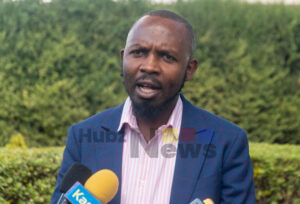Paying Taxes While Fueling Police Vehicles is Still Corruption
It is time for the government to seal revenue holes, finance fully all public institutions and regain public confidence in administration.

The mwananchi is not there at Treasury briefings or in Parliament when the budget is being allocated. They have no idea if fuel funds were disbursed or stolen. Photo/Courtesy
By Juliet Jerotich
In Kenya, your duty to remit taxes is brought to mind every day. Life is taxed on everything — from what we consume, to the fuel we burn, to the hustlers’ paltry income. If you pay late or default, the law bites hard: failure to file returns attracts penalties, and disobedience is an offence against the state.
But when it is the individuals who are responsible to hold these taxes, excuses immediately rear their heads. Not long ago, senior government officials openly admitted that police officers sometimes run out of fuel in their vehicles. Such a confession is not only devious but also demeaning to ordinary Kenyans who pay their taxes diligently.
How can a government that is adamant about collecting every shilling it can possibly get not be able to fund the very institutions responsible for protecting the public? When a police officer apprehends a driver and asks for cash for petrol — and we are assured this is not corruption — what exactly are we being told? That the state is not able to sustain its security organs? That taxpayers must shoulder a twin burden: exactly taxation and subsidizing police work in so-called “black budgets” straightaway?
Such statements are dangerous because they vindicate failure and create fertile ground for exploitation. If the commanders have already admitted to the shortage of fuel, why can’t the officers use the same excuse each time they want to demand money? How can a plain Kenyan be certain that the demand is genuine or is just another method of bribing?
The mwananchi is not there at Treasury briefings or in Parliament when the budget is being allocated. They have no idea if fuel funds were disbursed or stolen. So when an officer demands “chai” in the guise of needing fuel, need and corruption become indistinguishable. These admissions by government bigwigs only serve to legitimize what is essentially naked graft.
The reality is simple: it is not the duty of citizens to finance police patrols or operations directly. It is the duty of the government. Already, Kenyans contribute more than their fair share in taxes. In return, they demand security, accountability, and good service — not apologies.
By leaving gaps in the loopholes, the leadership is literally giving criminal officers a permit to extort. Tomorrow when a matatu driver is stopped and asked to pay for fuel money, the officer will simply quote lines of a Cabinet Secretary. Then who will the public turn to for protection?
It is time for the government to seal revenue holes, finance fully all public institutions and regain public confidence in administration. Citizens cannot be taxed to the brim and yet expect to fund running costs for institutions financed by the same taxes.
Corruption is not transformed by its new nomenclature. “Fuel” or “chai,” the impact remains the same — exploitation of poor Kenyans. If the government cannot finance the police’s basic services, then it is negligent in its duties. Excuse-making has run its course. Taxes must work for the people, not against them.






